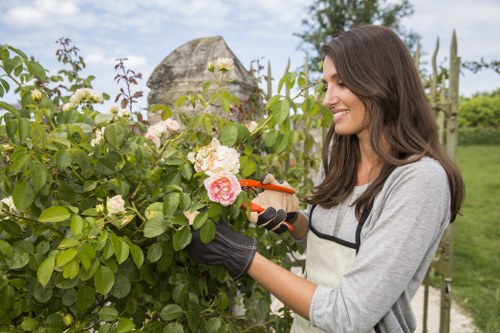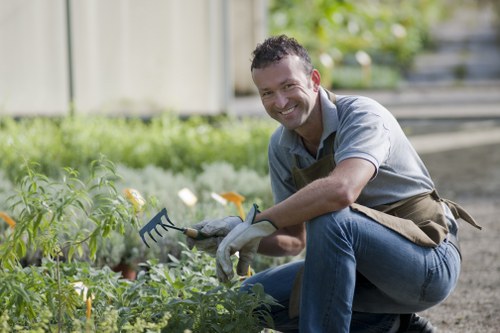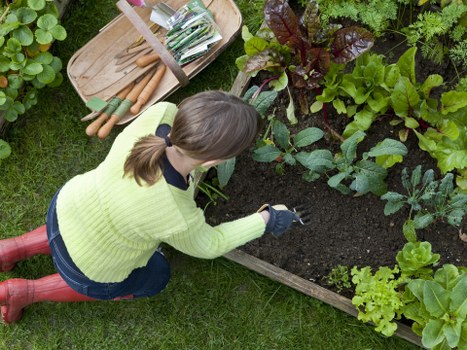Landscape Gardening in Belmont: Transforming Your Outdoor Space

Landscape gardening in Belmont is more than just planting flowers; it’s about creating a harmonious outdoor environment that reflects your personal style while enhancing the natural beauty of your property. Whether you’re looking to redesign your backyard, add functional outdoor spaces, or simply boost your home's curb appeal, Belmont offers a unique climate and soil conditions that can support a wide variety of gardening styles and plant selections.
Belmont’s diverse climate, characterized by mild winters and warm summers, provides an ideal setting for both native and exotic plants. This means homeowners have the flexibility to experiment with different garden designs, from lush, tropical landscapes to minimalistic, drought-resistant gardens. The key to successful landscape gardening in Belmont lies in understanding the local environment and selecting plants and materials that thrive in these conditions.
One of the first steps in landscape gardening is assessing your outdoor space. Consider factors such as sunlight exposure, soil quality, drainage, and existing vegetation. This evaluation will help determine which plants will be most successful and what design elements can be incorporated to create a seamless and attractive landscape. Whether you prefer a manicured garden with neatly trimmed hedges or a more natural, wildflower setting, Belmont’s gardening community provides ample resources and inspiration to help you achieve your vision.

The Benefits of Landscape Gardening in Belmont
Engaging in landscape gardening offers numerous benefits that extend beyond aesthetic appeal. A well-designed garden can significantly increase the value of your property, making it a worthwhile investment. Additionally, having a beautiful outdoor space provides a relaxing retreat where you can unwind, entertain guests, and enjoy nature right at your doorstep.
Landscape gardening also plays a crucial role in environmental sustainability. By incorporating native plants, you support local biodiversity and create habitats for various species of birds, insects, and other wildlife. Native plants are particularly well-suited to Belmont’s climate, requiring less water and maintenance while providing exceptional beauty and resilience.
Moreover, a thoughtfully designed garden can improve air quality, reduce noise pollution, and provide natural insulation for your home. Plants act as natural air purifiers, absorbing carbon dioxide and releasing oxygen, while densely planted areas can help dampen sounds from nearby roads or neighbors. These environmental benefits make landscape gardening a valuable addition to any Belmont home.

Choosing the Right Plants for Belmont’s Climate
Understanding Belmont’s Climate
Belmont enjoys a Mediterranean-like climate with mild, wet winters and warm, dry summers. This climate is ideal for a variety of plants, but it also poses certain challenges, such as the need for drought-resistant species and plants that can withstand occasional frost. Selecting plants that are well-adapted to these conditions is essential for a thriving landscape garden.
Native vs. Non-Native Plants
While non-native plants can add exotic flair to your garden, native plants are typically more resilient and require less maintenance. Belmont’s native flora includes species like California lilac, manzanita, and various types of sage, which are well-suited to the local climate and soil conditions. These plants not only thrive with minimal intervention but also support local ecosystems by attracting pollinators and other beneficial wildlife.
Popular Plant Choices for Belmont Gardens
- California Poppy: Bright and vibrant, these flowers add a splash of color to any garden.
- Lavender: Known for its soothing fragrance and attractive purple blooms.
- Succulents: Low-maintenance plants that are perfect for drought-resistant gardens.
- Japanese Maple: Provides stunning foliage and structural beauty.

Design Principles for Beautiful Gardens
Creating a Focal Point
Every beautiful garden has a focal point that draws the eye and provides structure to the overall design. This could be a striking tree, a water feature, a sculpture, or a well-designed seating area. In Belmont’s gardens, a focal point helps to anchor the space and guide the eye through different areas, creating a sense of balance and harmony.
Balancing Hardscaping and Softscaping
Hardscaping elements like patios, walkways, and walls provide structure and functionality, while softscaping elements such as plants, flowers, and greenery add softness and visual interest. Achieving the right balance between these two aspects is crucial for a cohesive garden design. In Belmont, integrating natural stone paths with lush plant beds can create a visually appealing and functional outdoor space.
Color and Texture Coordination
Using a variety of colors and textures in your garden can create depth and intrigue. Consider the color palette of your plant selections and how they complement each other throughout the seasons. Combining different textures, such as the smooth leaves of succulents with the rough bark of trees, adds dimension and can make your garden more engaging.
Example Color Schemes:
- Monochromatic: Utilizing varying shades of a single color for a calm and unified look.
- Complementary: Pairing colors opposite each other on the color wheel for vibrant contrast.
- Analogous: Using colors next to each other on the color wheel for a harmonious feel.

Sustainable Gardening Practices
Incorporating sustainable practices into your landscape gardening not only benefits the environment but also ensures the longevity and health of your garden. Belmond’s climate is well-suited to several eco-friendly gardening techniques that can make your outdoor space both beautiful and sustainable.
Water Conservation
Water is a precious resource, and conserving it is essential, especially during the dry summer months in Belmont. Implementing rainwater harvesting systems, using drip irrigation, and selecting drought-tolerant plants are effective ways to reduce water usage in your garden.
Composting and Soil Health
Healthy soil is the foundation of a thriving garden. Composting kitchen scraps and garden waste enriches the soil with essential nutrients and improves its structure. In Belmont, the use of organic mulches can also help retain moisture, suppress weeds, and regulate soil temperature.
Organic Gardening
Avoiding chemical fertilizers and pesticides in favor of organic alternatives promotes a healthier ecosystem. Beneficial insects, such as bees and ladybugs, can thrive in an organic garden, providing natural pest control and enhancing pollination.
Benefits of Sustainable Gardening:
- Environmental Protection: Reduces pollution and conserves natural resources.
- Cost Efficiency: Lower water bills and reduced need for chemical inputs.
- Biodiversity: Supports a wider range of plant and animal life.

Seasonal Gardening Tips for Belmont
Spring: Preparing for Growth
Spring is the perfect time to prepare your garden for the growing season. Start by clearing any debris from the winter months and pruning overgrown plants. Planting new flowers and shrubs in the spring ensures they have ample time to establish before the heat of the summer.
Summer: Maintaining Health and Beauty
During the summer, focus on maintaining the health of your garden by watering consistently and controlling pests. Mulching around plants helps retain moisture and keeps the soil cool. Regular weeding and deadheading flowers promote continuous blooming.
Fall: Preparing for Winter
As temperatures begin to cool, prepare your garden for the winter months by planting hardy perennials and bulbs that will bloom the following spring. Clean up fallen leaves and protect sensitive plants with mulch or frost covers to prevent damage from cold snaps.
Winter: Planning and Relaxing
Winter is a time for planning and reflection. Evaluate what worked well in your garden and what could be improved. Take the opportunity to design new garden layouts, select plants for the upcoming seasons, and enjoy the stillness of a winter garden.

Hiring Professional Landscape Gardeners in Belmont
While DIY landscape gardening can be rewarding, hiring professional landscape gardeners in Belmont brings expertise and efficiency to your project. Professionals can help you create a comprehensive garden plan, select appropriate plants, and implement design features that you might not consider on your own.
Benefits of Professional Services
- Expertise: Professionals have knowledge of local climate, soil conditions, and plant varieties.
- Time-Saving: They can complete projects more quickly and efficiently.
- Quality: Ensures a high standard of workmanship and design.
Choosing the Right Landscape Gardener
When selecting a landscape gardener in Belmont, consider factors such as experience, portfolio of past work, and client reviews. It’s important to communicate your vision clearly and ensure that the gardener understands your specific needs and preferences.
Questions to Ask Potential Gardeners
- What experience do you have with landscape gardening in Belmont?
- Can you provide references or examples of previous projects?
- What is your design and maintenance process?
- How do you handle unexpected challenges during a project?

DIY Landscape Gardening: Tips and Tricks
For those who prefer a hands-on approach, DIY landscape gardening in Belmont can be both fulfilling and cost-effective. With the right planning and resources, you can create a stunning garden that meets your specific tastes and requirements.
Planning Your Garden
Start by sketching a layout of your garden space, identifying areas for planting, hardscaping, and other features. Consider the placement of trees and shrubs to maximize sunlight exposure and ensure proper growth.
Selecting Tools and Materials
Investing in quality tools and materials is essential for successful DIY gardening. Basic tools include a spade, pruners, a watering hose, and gardening gloves. Additionally, gather materials such as soil amendments, mulch, and plant supports to facilitate healthy plant growth.
Budget-Friendly Gardening
You don’t need to spend a fortune to create a beautiful garden. Utilize recycled materials for hardscaping, propagate plants from existing ones, and take advantage of sales and discounts on gardening supplies.
Maintaining Your DIY Garden:
- Regular watering and deep watering techniques.
- Pruning and trimming to encourage healthy growth.
- Weeding and pest control to maintain plant health.
- Seasonal adjustments to planting and care routines.

Enhancing Your Garden with Hardscaping
Hardscaping elements such as patios, walkways, and garden structures add functionality and aesthetic appeal to your landscape garden. In Belmont, integrating hardscaping with softscaping can create a balanced and inviting outdoor space.
Patios and Outdoor Living Areas
Creating a dedicated outdoor living area provides a space for relaxation and entertainment. Options include paved patios, wooden decks, or stone terraces. Adding comfortable seating, outdoor lighting, and weather-resistant furniture can enhance the functionality of these spaces.
Pathways and Walkways
Pathways guide visitors through your garden and can be designed using a variety of materials such as gravel, concrete, or natural stone. Curved pathways create a sense of exploration, while straight paths offer a more formal and structured look.
Garden Structures
Incorporating structures like pergolas, arbors, and gazebos adds vertical interest and provides shade and shelter. These elements can serve as focal points or functional spaces for seating and gatherings.
Choosing the Right Materials:
- Stone: Durable and natural-looking, ideal for pathways and patios.
- Wood: Versatile and warm, perfect for decks and pergolas.
- Concrete: Practical and low-maintenance for a modern aesthetic.
- Brick: Classic and sturdy, suitable for various hardscaping applications.

Maintaining Your Landscape Garden
Maintenance is a crucial aspect of landscape gardening that ensures the longevity and beauty of your outdoor space. Regular care routines help prevent issues such as plant diseases, pest infestations, and structural damage to hardscaping elements.
Regular Watering and Irrigation
Consistent watering is essential for plant health, especially during dry periods. Installing an efficient irrigation system can automate this process and ensure that all areas of your garden receive adequate moisture without overwatering.
Pruning and Trimming
Regular pruning helps maintain the shape and size of your plants, encouraging healthy growth and preventing overcrowding. Trimming also eliminates dead or diseased branches, promoting the overall health of your garden.
Weed Control
Weeds compete with your plants for nutrients and water, so keeping them under control is essential. Use mulch to suppress weed growth and manually remove weeds as needed to keep your garden looking tidy.
Seasonal Maintenance Tasks:
- Spring: Prepare beds, plant new specimens, and fertilize.
- Summer: Monitor for pests, maintain irrigation, and deadhead flowers.
- Fall: Clean up debris, prepare plants for winter, and plant bulbs.
- Winter: Protect sensitive plants and plan for the upcoming growing season.
Soil Care and Fertilization
Healthy soil is the foundation of a thriving garden. Regularly testing your soil and amending it with compost or other organic matter can improve its structure and nutrient content. Fertilize plants as needed to support their growth and flowering throughout the seasons.
Pest and Disease Management
Early detection and treatment of pests and diseases can prevent widespread damage. Use natural or organic pest control methods to minimize harm to beneficial insects and the environment. Keeping your garden clean and free of debris also reduces the chances of infestations.
Tools for Maintenance:
- Pruners and Shears: Essential for trimming and shaping plants.
- Garden Hose and Sprinklers: For efficient watering.
- Weeding Tools: Make weed removal easier and more effective.
- Soil Test Kits: Help monitor soil health and nutrient levels.

Conclusion
Landscape gardening in Belmont offers endless possibilities for transforming your outdoor space into a beautiful, functional, and sustainable environment. By understanding the local climate, selecting appropriate plants, and incorporating thoughtful design principles, you can create a garden that not only enhances your property's aesthetic appeal but also provides a personal sanctuary for relaxation and enjoyment.
Whether you choose to hire professional landscape gardeners or embark on a DIY project, the key to success lies in careful planning, regular maintenance, and a commitment to sustainability. Embrace the natural beauty of Belmont and let your garden flourish with creativity and care.
Ready to transform your outdoor space? Contact us today to start your landscape gardening journey in Belmont!